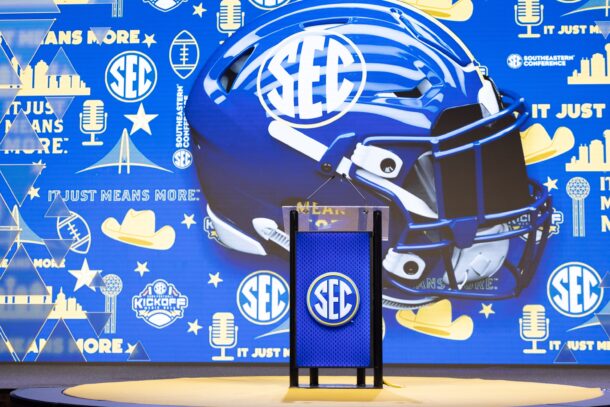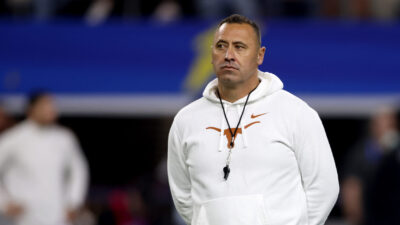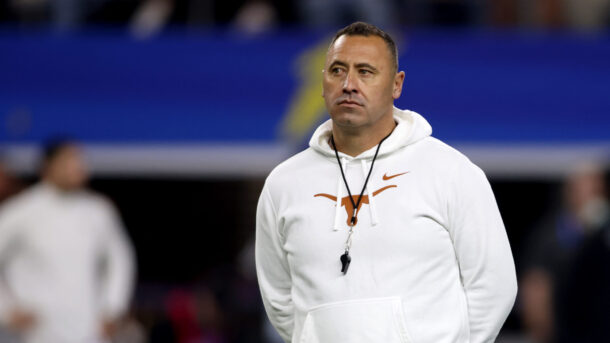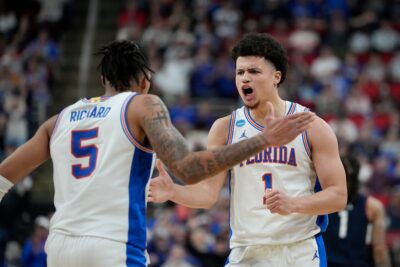Ad Disclosure
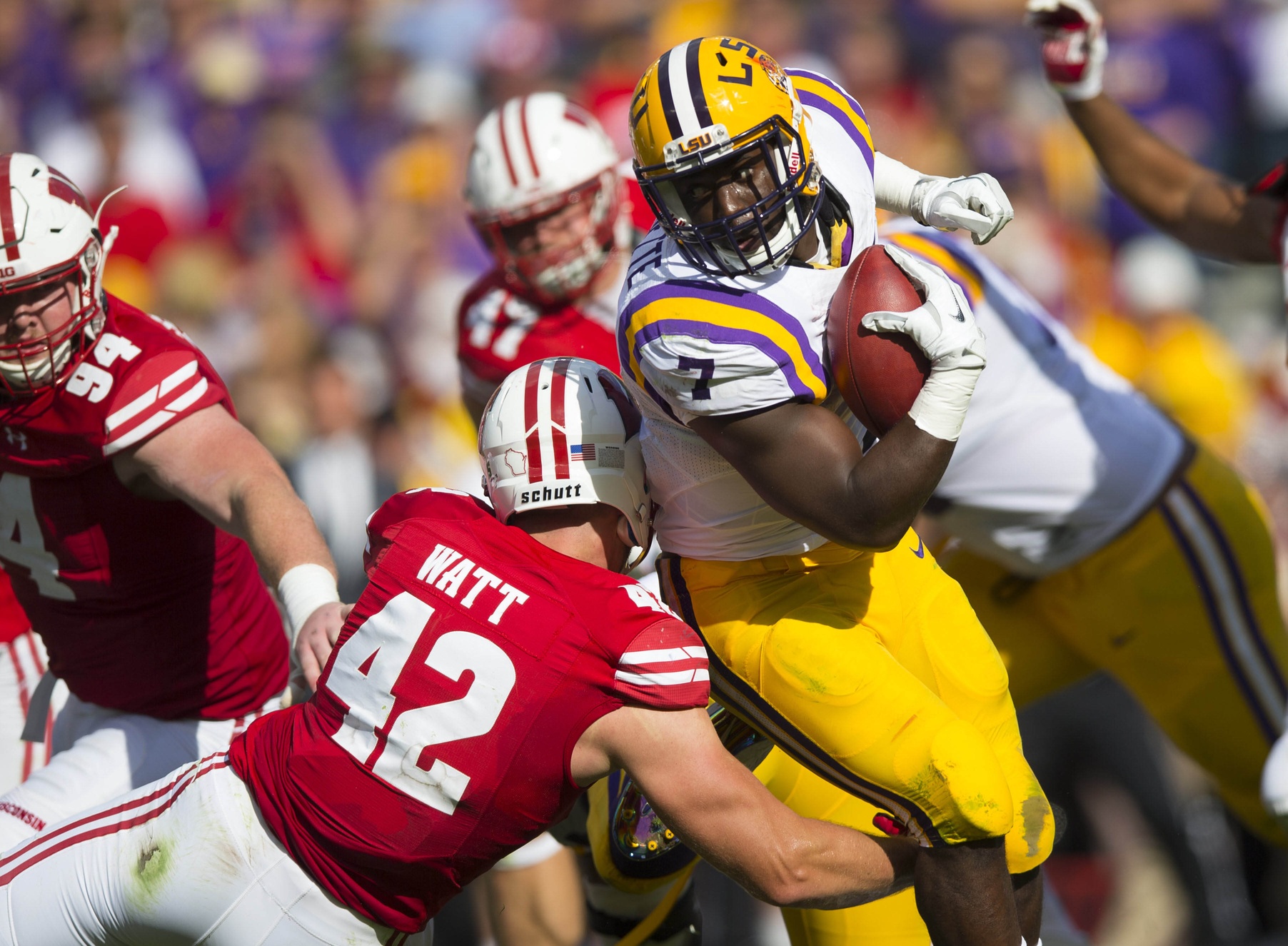
With LSU driving for what it hoped would be a winning field goal on Saturday in what turned out to be a 16-14 loss to Wisconsin, junior left guard Will Clapp, a second-year starter, committed a false start.
It was not an insignificant penalty. LSU was at Wisconsin’s 30 with just over a minute left and a timeout to work with. The Tigers were at the edge of field goal range for kicker Colby Delahoussaye, who in his career is 5-for-6 on field goals of 40 yards or more with a long of 50.
Even without star running back Leonard Fournette, who suffered a leg injury on a 15-yard run that put the ball on the 30, the Tigers had the opportunity to pound a couple of run plays over the middle with the dangerous Derrius Guice, then use the timeout to bring Delahoussaye out for a game-winner.
It was a completely manageable situation for a competent offense.
Instead, the penalty led to a pass play, which is the one you’ve seen. Quarterback Brandon Harris, who had completed three passes for 30 yards on the drive, evaded a sack from an unblocked rusher, spun to his left, then inexplicably threw the ball right to Badgers defensive back D’Cota Dixon, who intercepted it to seal the game.
When you look at that sequence, there is a lot of blame to go around and Harris was just a part of it. Clapp’s penalty was absolutely critical. The fact that a pass-rusher was unblocked was a huge issue. And, of course, Harris’ decision is the one mistake of the three that people will discuss.
But, as you can see, the circumstance that put him in a situation where he was scrambling for his life on a 1st-and-15 were things beyond his control.
And with all the heat Harris is taking today — not completely undeserved — that’s the point that’s getting missed.
The failure in the LSU offense isn’t just about the quarterback. For what the Tigers are trying to do on offense, the entire offense outside of Fournette, is a failure.
This takes in what happened during last season’s three-game losing streak that put Les Miles on the hot seat and what happened at Lambeau Field on Saturday, a game where the offense managed just 257 yards and failed to get at least one first down on a third of its possessions.
I know a lot of fans give Miles and offensive coordinator Cam Cameron grief for being a power football, I-formation team in the age of the spread. To me, that’s not the issue.
The issue is that LSU is a BAD power football, I-formation team with only the presence of Fournette to put a Band-Aid on it.
To play this style of football, here’s what you need to be good at:
- Consistency. You are fighting for 10 yards on three plays and you aren’t necessarily counting on explosive plays. So false starts, like the one by Clapp, are more critical than if you were a spread team. They are never good, but it’s even more critical when you are playing five-yards-at-a-time football.
- Playing field position. You are trying to gain yardage on possession exchanges. If you get the ball on your 20 and you don’t score, the goal is to get the ball in better field position the next possession. You do that by getting first downs — converting on 3rd-and-medium is critical — playing good defense, then winning special teams exchanges. Your punts have to be better than the other team’s.
- Protecting the football.
- Executing easy plays consistently.
LSU is good at just a couple of these things. The Tigers play good defense, and they obviously can run the football. But for a team trying to play ball-control, they miss assignments on the offensive line, they commit penalties (worst in the SEC last year) and Harris is inconsistent on the short and medium passes. Harris was one of the least accurate quarterbacks in Division I football last year and had trouble with it again in the opener.
LSU turned the ball over three times against Wisconsin (the Tigers, they were the best in the SEC at protecting the football last season). And their special teams almost always loses yardage in possession exchanges, finishing among the worst teams in the SEC in net punting and kickoff coverage last year, a trend that continued in the Wisconsin game.
Harris is among those issues, but it’s a long list.
One may choose to blame the offensive line for its part, blame the punter, the kicker, the wide receivers and Harris. Hold them all separately accountable. But when the problems are so widespread, the real blame falls on one place: Miles and his staff.
If you’re going to run this kind of offense, it’s up to the coaching staff to mold a disciplined group that can do the things necessary to make it work. Outside of recruit a stud running back and a hell of a defense, Miles and a well-paid offensive staff full of impressive résumés have failed to deliver the kind of product they are handsomely paid to create.
So forget about Harris and hanging him out to dry. That’s not the biggest problem.
The problem is LSU is trying to run a certain offense it doesn’t appear prepared to run. That put Miles on the hot seat last season. And it should put him back there now.
It’s a long season and things can, and might, change.
But if this is the product one of the best-paid coaching staffs in college football with nearly unlimited resources is able to produce, then LSU will need to do what it almost did last year and go another direction.
